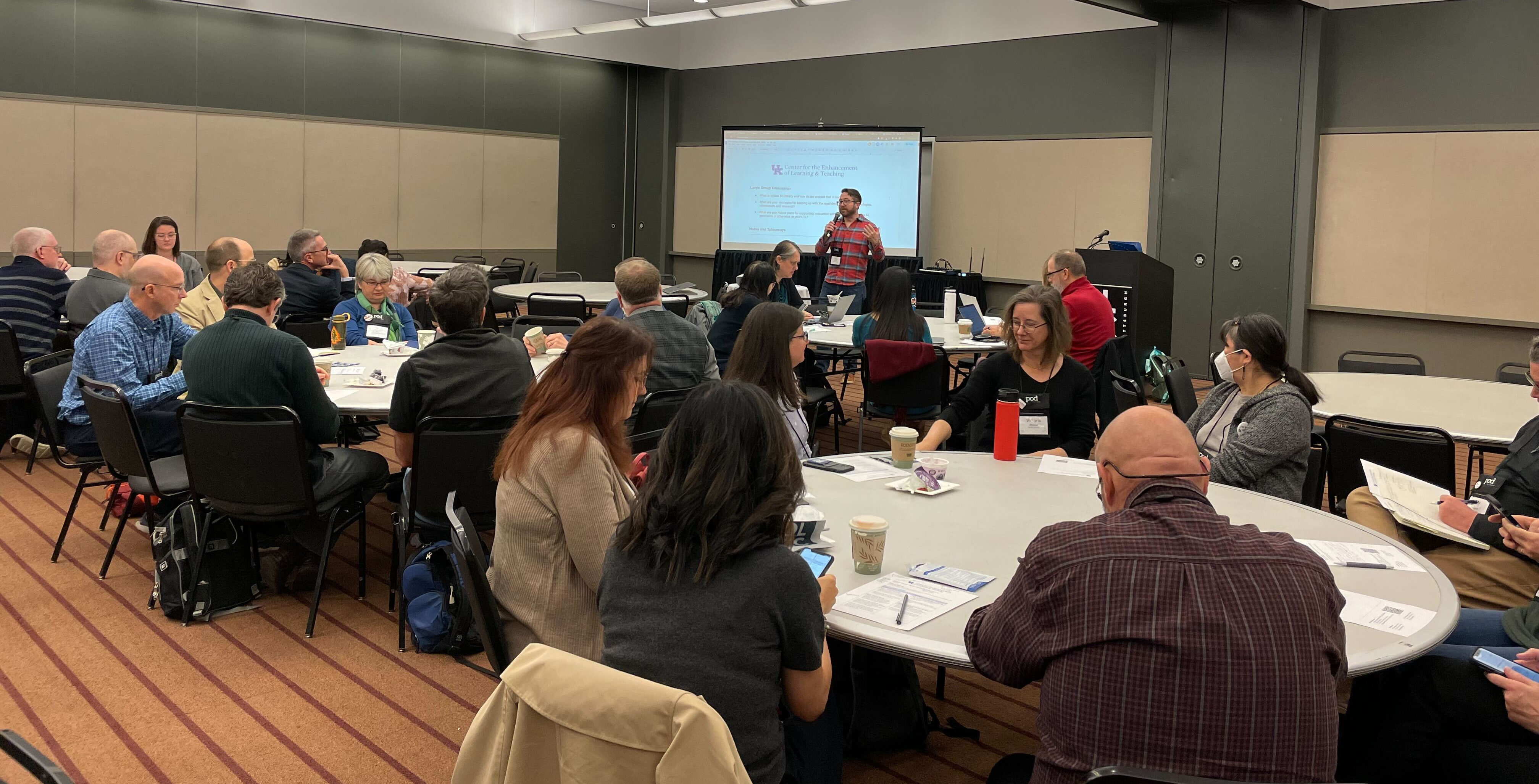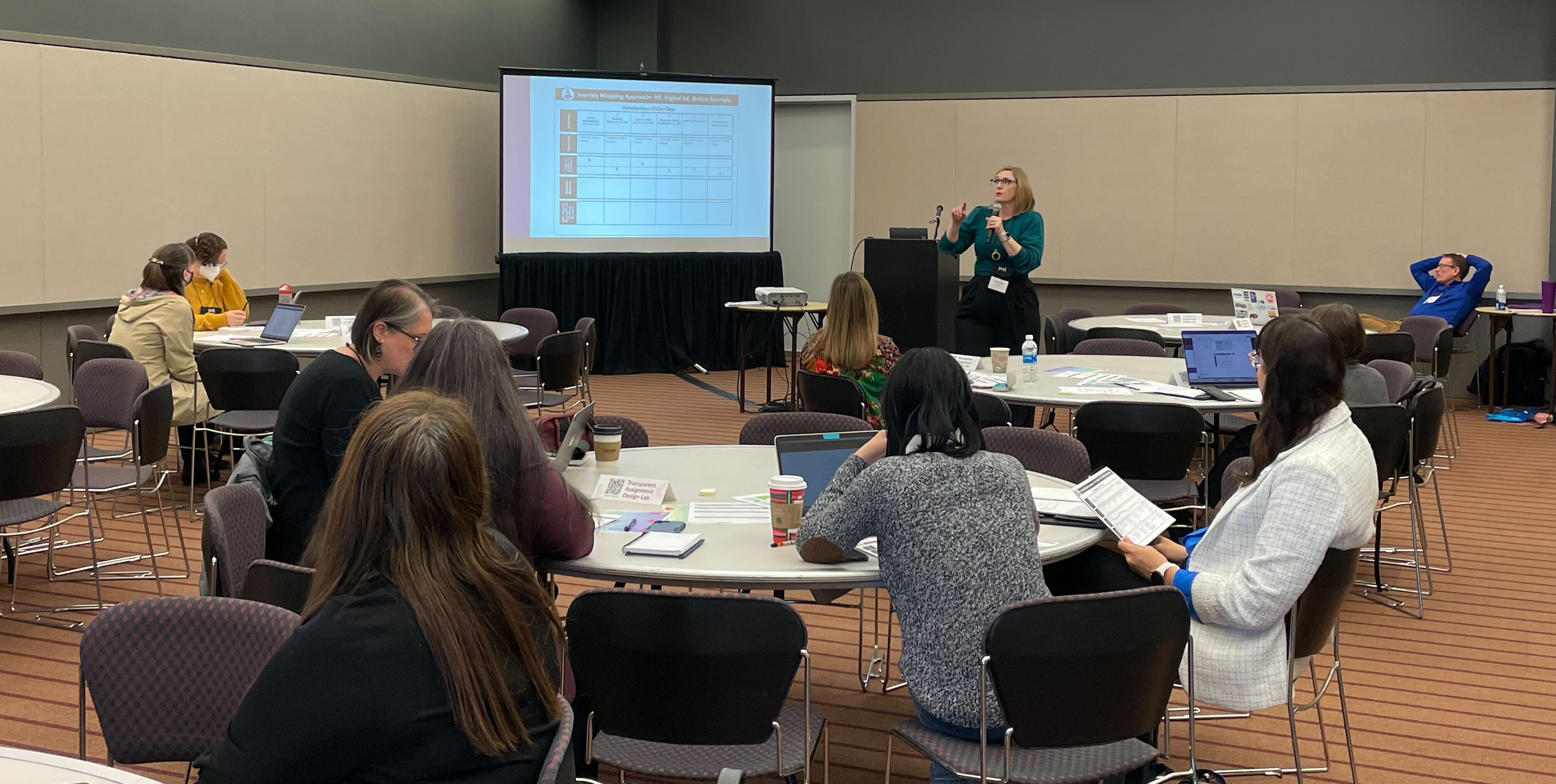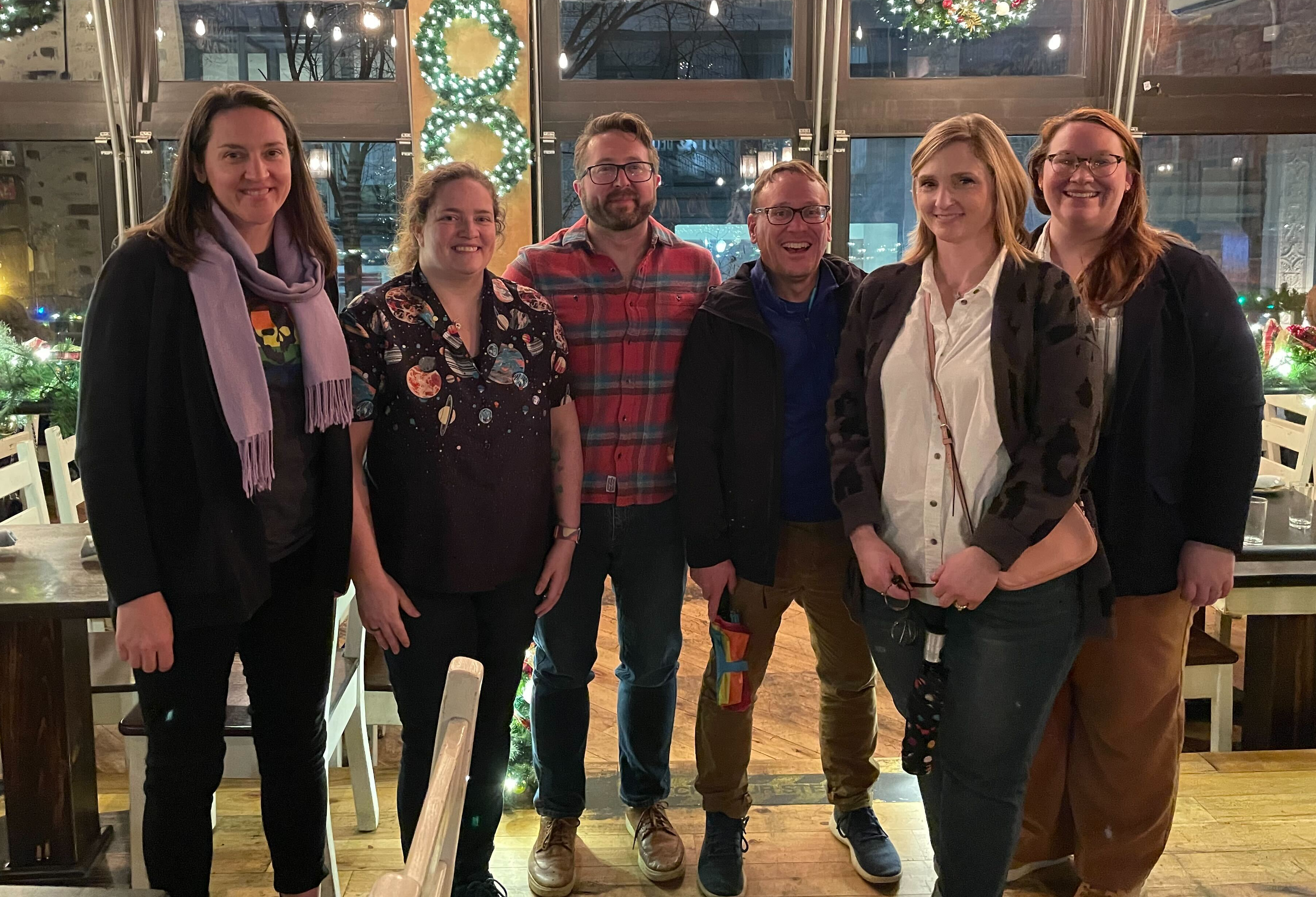CELT Presents on Generative AI & Transparent Assignment Design at Annual POD Network Conference
Two urgent issues that face us in higher education are the rapid development and proliferation of generative AI technologies and the reckoning with the impacts that the COVID-19 pandemic has left on students' learning. CELT staff recently led sessions for other educational developers on these critical topics at the annual Professional and Organizational Development (POD) Network conference, held both online and in Pittsburgh, PA. The POD Network annual conference is one of the major national gatherings for centers for teaching and learning (CTLs) in U.S. higher education.
During the "Generative AI and the Center for Teaching and Learning" session, Dr. Jill Abney and Dr. Trey Conatser led participants through a series of strategic questions regarding the role that CTLs can and should play in leading their institutions' responses to ongoing developments in generative AI technologies, including how CTLs can support assignment design across the disciplines; build instructors' (and their own) skills and critical literacies for using generative AI; and collaborate with institutional leadership and other stakeholders on response and policy.
For "Design Lab: Transparent Assignments," Dr. Jennifer Pusateri and Dr. Mike Wallace addressed how CTL staff can support instructors in creating assignments that increase the likelihood of students meeting expectations, submitting on time, and with fewer last-minute questions. This framework for instructional development and assignment design offers a strategic way of responding to changes in student learning in the wake of the COVID-19 pandemic, particularly regarding how we can better support students' development of executive functions and self-regulation for learning.
CELTics Kate Collins, Dr. Shawna Felkins, Dr. Madeline Aulisio Miller, and Dr. Ashley Sorrell also participated in the conference.

"Generative AI and the Center for Teaching and Learning" session, led by Dr. Jill Abney and Dr. Trey Conatser

"Design Lab: Transparent Assignments" session, led by Dr. Jennifer Pusateri and Dr. Mike Wallace

CELT participants (L to R): Dr. Jill Abney, Kate Collins, Dr. Trey Conatser, Dr. Mike Wallace, Dr. Jennifer Pusateri, Dr. Shawna Felkins (participating online, not pictured: Dr. Madeline Aulisio Miller, Dr. Ashley Sorrell)